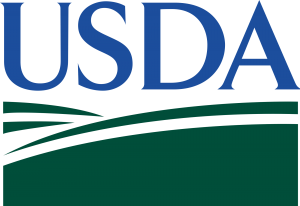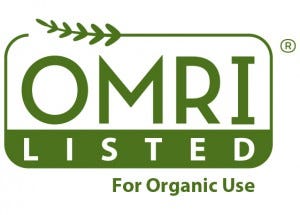
Organic labeling can confuse consumers, especially those new to the idea of shopping for environmentally conscious, pesticide-free foods. Exactly what does organic mean, anyway?
An organic product uses production methods that conserve biodiversity, focus on renewable and sustainable resources, and encourage ecological balance. Organic products cannot use synthetic fertilizers, prohibited pesticides or sewage sludge. Additionally, the product cannot involve irradiation or genetic engineering.
Identifying Organic Products

How do you know a product is truly organic or just paying lip-service to the term? The best method is to look for the United States Department of Agriculture (USDA) organic seal, which certifies the product meets federally mandated definitions of organic.
The USDA National Organic Program Seal
The USDA’s National Organic Program (NOP) regulates the production of organic crops, livestock and agricultural products. The program inspects and audits manufacturers to ensure they meet federal requirements for organic products. Only products meeting these specifications have the right to bear the NOP seal. In addition, the NOP monitors over 90 international organic certification agencies to ensure organic products imported into the U.S. meet USDA standards.
Choosing grains, vegetables and fruit bearing the USDA organic seal verifies no synthetic fertilizers, sewage sludge or prohibited pesticides were used during growth or production. In addition, the organic seal indicates the product is GMO-free.
Livestock meeting USDA organic requirements must meet animal health and welfare requirements. For instance, cows must be pastured during pasture season and all animals must have access to an outdoor environment. Animals must be fed 100 percent organic feed (which must also meet USDA organic standards) and cannot be exposed to growth hormones or antibiotics.
If you want a truly organic experience, be careful when purchasing multi-ingredient foods. The USDA organic seal indicates a multi-ingredient product has 95 percent organic ingredients, meaning five percent of the product’s ingredients do not have to meet organic benchmarks.
Other Labels
In addition to the USDA organic seal, livestock products may use a variety of labels detailing how the animal was raised. These are voluntary labels, not all of which are overseen by the USDA. Such labels include:
- Cage-free: Poultry was allowed to freely roam an enclosed space with unlimited access to food and water.
- Free-range: Poultry was provided shelter with unlimited access to the outdoors, food and water. The USDA regulates free-range labeling.
- Grass-fed: The animal received most nutrients from grass, with organic feed regulated by the USDA supplementing pasture feeding. Grass-fed labels do not limit use of hormones, antibiotics or pesticide exposure. To be safe, look for organic grass-fed meat, which must meet the USDA requirements for both organic agriculture and grass-fed labels.
- Humane: This means the animal was treated humanely throughout production. Many different labels claim this, but a producer’s definition of humane may not — and often does not — match consumer definitions.
- Natural: Any animal product labeled natural must have minimal processing and no artificial ingredients. The label only applies to the processing of meat and egg products, and it makes no claims about farm practices.
- Pasture-Raised: Pasture-raised includes many different agricultural situations and is not USDA regulated.
OMRI Listed® Certification

In addition to the USDA National Organic Seal, organic products may also be Organic Materials Review Institute listed. OMRI is a national non-profit organization that independently monitors products to maintain compliance with the organic gardening standards developed by the NOP. Only products with USDA organic certification qualify for OMRI Listed® statis. Products with both a USDA organic seal and OMRI Listed® meet the highest criteria for organic production and processing.



